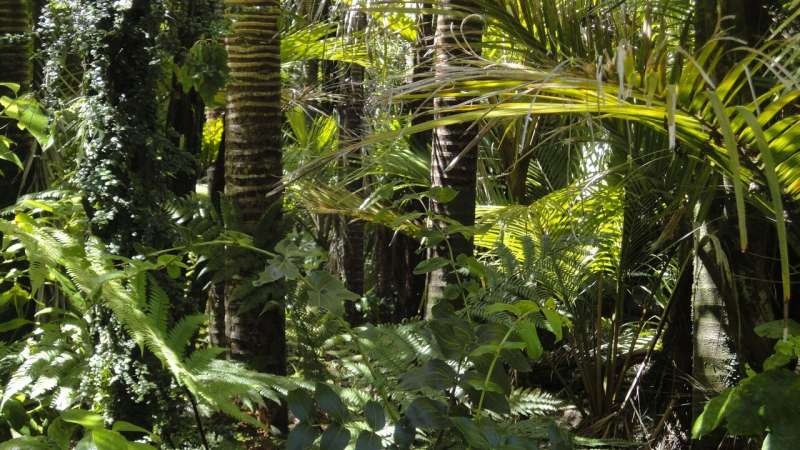Credit: CC0 Public Domain
A team of researchers led by Paulo Brando, assistant professor at the University of California, Irvine, has found evidence that parts of the Amazon Rainforest could switch from a carbon sink to a carbon source by 2050. In their paper published in the journal Science Advances, the group describes environmental simulations they developed and what they learned from them.
This past summer, fires in the Amazon made headlines as environmentalists worried that deforestation of the world's largest rainforest would worsen global warming. In this new effort, the researchers wondered what the Amazon might look like by the half-century mark if deforestation and fires continued. To find out, they used computer simulations.
In creating their simulations, the researchers took into account variables such as rainfall amounts, deforestation, rising temperatures and drought. They also noted that an increase in temperature in the Amazon River Basin leads to drying of the forest. Under normal conditions, a fire in the forest does not burn for very long because of wet conditions—dry conditions lead to longer-lasting and bigger fires. Hotter and drier conditions also lead to a buildup of brush and dead material on the forest floor that can serve as tinder for fire. The hotter and drier the forest becomes, the more susceptible it is to loss due to forest fires.
The researchers ran their simulations under different conditions to gain a better understanding of possible outcomes for the region. Their simulations showed that if deforestation continues at its current rate, the increased dryness that results would lead to burning approximately 16 percent of the southern Brazilian Amazon forest by 2050. That amount of lost forest, they suggest, could be enough to flip the region from a carbon sink to a carbon source. And that would mean an increase in greenhouse gases in the atmosphere, leading to a hotter planet.
The researchers also point out that there is another option—humans could stop cutting down the rainforest. They report that their simulations showed that if deforestation were discontinued now, the amount of forest lost to fire would be reduced by 30 percent compared to business as usual.
More information: P.M. Brando at University of California, Irvine in Irvine, CA el al., "The gathering firestorm in southern Amazonia," Science Advances (2019). advances.sciencemag.org/content/6/1/eaay1632
Journal information: Science Advances
© 2020 Science X Network
























